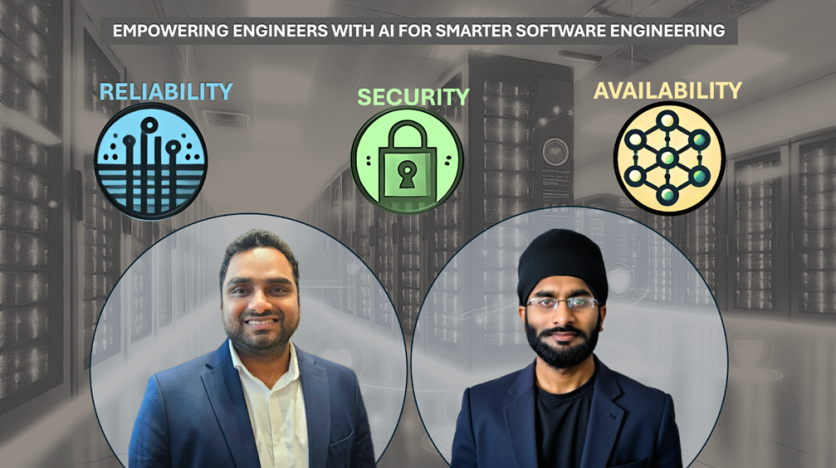
Software engineering continues to expand as companies face rising security threats and demands for quick delivery. Development teams spend significant time on repetitive tasks and maintenance, while artificial intelligence (AI) effectively solves these challenges. Leading industry experts share their insights on AI's role in addressing these pressing concerns.
Industry Experts'Perspectives
Balvinder Banjardar is an experienced software engineering leader with 20 years of expertise in developing high-scale, mission-critical applications that enhance business operations and productivity. His work spans the human resources (HR), consulting, mortgage, federal, and retail sectors. Banjardar has received multiple awards, including a 2024 Global Recognition Award, the 2024 International Achievers Awards by IAF India, and the Technology Impact & Excellence Awards at the various firms where he has worked, along with other recognitions for his exceptional leadership in information technology (IT) and digital transformation.
Vihar Manchala has over 10 years of experience in the data, retail, and travel industries. He develops and architects high-performing software services, using AI to create reliable applications that improve user experiences. His practical experience with AI implementation provides valuable insights into its potential and limitations.
AI-Driven Transformation in Software Engineering
Artificial Intelligence (AI) is reshaping industries globally. Software engineering is one of the fields undergoing a profound transformation due to AI. With its ability to analyze data, predict outcomes, and automate processes, AI has become an essential tool, changing every phase of software development.
The earliest stage of software development is "requirements analysis." AI-driven tools have significantly enhanced This particular phase. These tools analyze factors like anticipated user load, infrastructure needs, and budget constraints, enabling project leaders to make informed decisions while saving time. Additionally, AI improves the clarity and precision of documentation, creating a strong foundation for successful projects.
With his extensive experience building critical software solutions and reliable platforms, Banjardar highlights the transformative impact of AI in software engineering: "AI in software engineering isn't just about automation, it's about enhancing efficiency while maintaining a robust layer of human oversight. For large-scale teams, the key challenge isn't just deploying technology, and it's about integrating AI in a way that empowers cross-functional collaboration, streamlines decision-making, and scales without losing sight of quality."
Enhancing Software Engineering with AI: Tools, Teamwork, and Testing Advancements
AI also empowers software engineers through AI-powered integrated development environment tools. These advanced tools offer a wide range of benefits for engineers, such as optimizing code for better performance, fixing security vulnerabilities, cleaning up messy or inefficient code, improving documentation of technical aspects, and even detecting functionality issues before they become problems. These tools allow software engineers to focus on solving complex problems, significantly reducing development time by automating repetitive tasks. Manchala, through his extensive experience in developing time-sensitive applications, quotes that "Time to Market of a software application reduced due to usage of AI integration in development tools by engineering teams."
With his experience successfully managing global teams, Banjardar adds: "Managing diverse, high-performing teams across multiple projects requires a nuanced approach, where AI can help enhance communication, optimize workflows, and ensure alignment with strategic goals."
The testing phase also saw remarkable advancements due to AI. It strengthens software quality by enabling the creation of comprehensive test suites that ensure confidence in a software product, proactively identifying vulnerabilities, improving test coverage, and minimizing real-time issues. By leveraging AI's predictive capabilities, teams can identify edge cases and performance bottlenecks early in development, leading to more resilient and secure software.
AI in Deployment and Monitoring: Balancing Innovation with Oversight
AI tools have changed the process of identifying issues during the deployment phase of software solutions. During version releases, AI mitigates risks by detecting potential go-live failures and enabling automatic rollbacks to stable versions, ensuring smoother transitions for new software versions.
Based on his experience in AI-driven software development, Banjardar believes that AI-driven automatic version rollback can reduce downtime by 50–70% compared to traditional go-live processes. He adds that AI plays a critical role in monitoring application performance after deployment, helps analyze metrics, recommends optimizations, and ensures reliability and scalability, contributing to the long-term success of software applications.
Despite its transformative capabilities, AI has limitations. Manchala, through his expertise in leading and architecting in building critical applications, indicates that 15–20 percent of failures are additionally caused by lack of oversight, poor understanding of AI behavior, or improper integration into business processes.
Manchala also emphasizes that "Developers must actively review AI-generated code. While AI boosts productivity, it's still in its nascent stages and cannot be trusted completely. Test suites generated by AI should not be blindly relied upon. Faulty initial designs can lead AI to reinforce flawed assumptions, compounding errors."
Conclusion: Balancing AI Innovation with Expert Oversight in Software Engineering
As AI continues to develop, its potential in software engineering will continue to grow. As a productivity booster, AI empowers developers to focus on innovation and creativity. However, success lies in adopting a balanced approach that combines AI's strengths with the irreplaceable oversight of skilled professionals.
ⓒ 2025 TECHTIMES.com All rights reserved. Do not reproduce without permission.




